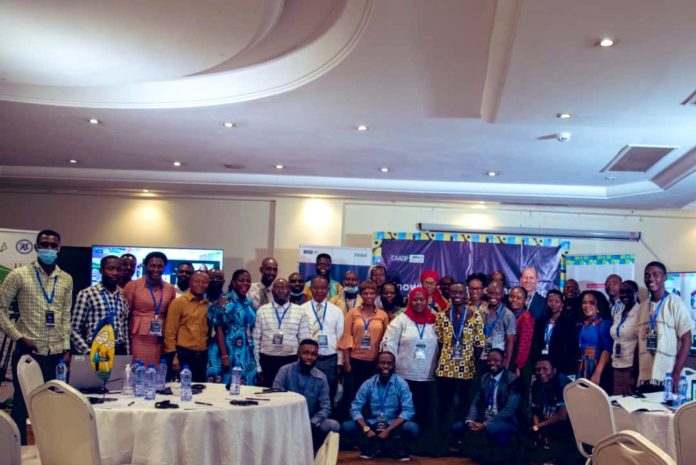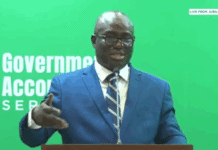Despite the gains made towards achieving Agricultural Transformational Development in Ghana, significant challenges remain in ensuring that the newly promoted Akosombo Integration Agenda to deliver sustainable services continues well into the future.
A recent scan on knowledge management in the Ghana agricultural sector reveals that Ghana’s agriculture sector is not knowledge-driven, and generally there is a lack of learning culture. Investment in documentation, research, and information management is still low, although digitalisation is ongoing.
To address this, the various institutions and stakeholders from across Africa converged at the maiden KM4AgD Conference were mandated through the CAADP framework to adopt the new KM4AgD Agenda for Africa. This agenda is one way to achieve the Malabo goals, UN agenda 2063, and SDGs.
The Continental Data Capture Strategy2021 (CDCS) developed by FARA in collaboration with experts and representatives of the CAADP-XP4 partners have established the significance of the Learning Alliance Approach in influencing learning and adaptive capacity in Africa’s agricultural sector. The strategy aims to ensure that the Ghana agrarian sector has become vibrant in experience sharing, documentation, and dissemination. It recommends institutionalising a guiding model for a more systematic building up and deploying knowledge for policy, programming, and practice.
The CAADP-XP4 institutional Partnerships Development on Knowledge Management and Sector Learning for Africa seeks to ensure solutions are informed by evidence for achieving sustainable agricultural transformation services. It also aims to contribute to the African agriculture sector KM Strategy and strengthen sector learning at the regional level, including Ghana. Through the Knowledge Management conference in Accra 2021. There has been a mapping of demand and needs for knowledge management and sector learning in the programme countries. The enthusiasm to mainstream the KM4AgD at the country level and the deployment of country KM4AgD plans and policies has become imperative.
It is worth noting that the key challenges as identified by a study on Ghana’s sector in 2021 persist. These challenges include: (1) how district learning can be up-scaled and linked to the national sector level; (2) how the learning lessons can more effectively influence sector policies and programming; and (3) how the initiative and sector learning more broadly can become financially sustainable. The recent 3 Ghanaian KM4AgD Certified Champions on the CAADP-XP4 partnership are ready to support the Ghana learning initiative to develop a plan for any organisation to address the above challenges, among others.
A team of 3 certified young Ghanaians and KM4AgD experts (Paul Atsu of Footprints Bridge International, Zainab Abdulai, an Agricultural Extensionist Officer at MOFA, and Marilyn Yeboah, a researcher at CSIR-SARI) have stepped forward to help tackle these challenges. These young KM champions, also members of the Africa Chapter of the Young Professionals for Agricultural Research for Development (YPARD), were certified through the KM4AgD Challenge organised by FARA and partners in 2021.
The team has begun developing a national knowledge management work plan to address the challenges mentioned, including improving areas in extension services and research that are quite active in sharing knowledge but less organised in other learning cycle components. The team recognises the need for a learning framework to be institutionalised to improve sector learning. The starting point shall be adopting the KM4AgD agenda by various sectors and institutions.








